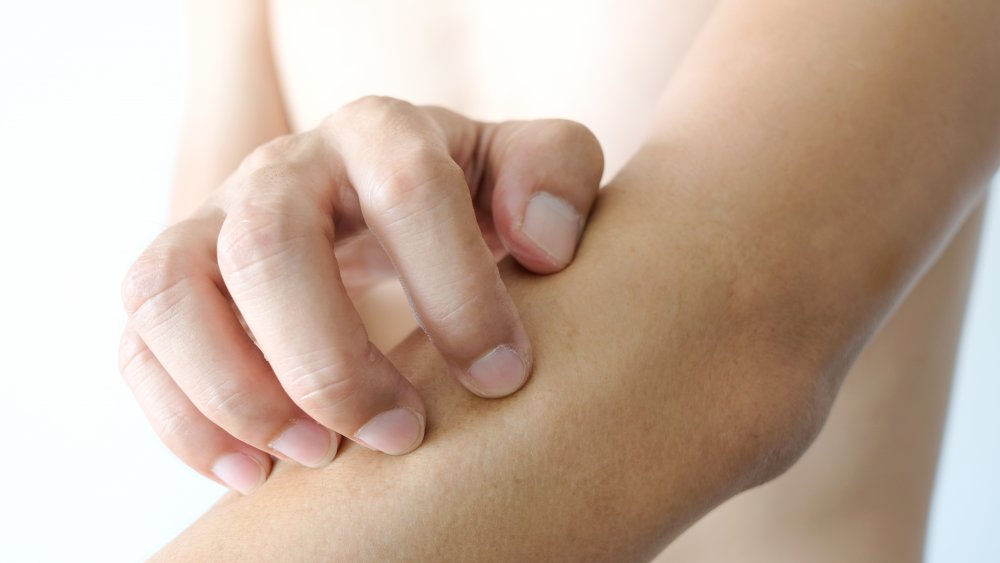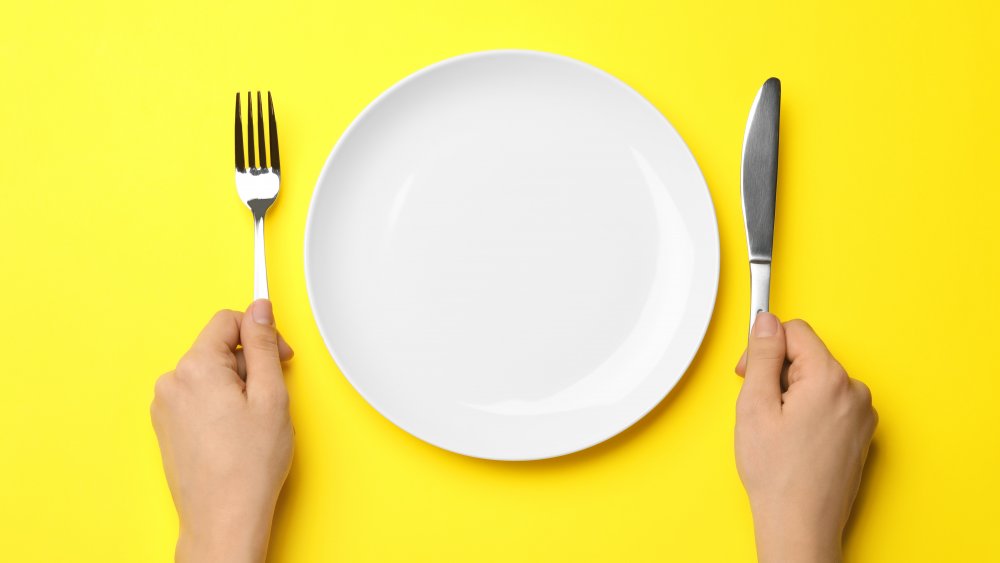Does Avoiding Certain Foods Really Help Your Eczema?
If you suffer from eczema, also known as atopic dermatitis, you probably know that your skin reacts to just about anything from your own sweat and stress to external triggers like dust, soap, detergent, and pollen. These triggers can cause dry patches, irritated skin, and even oozing blisters and rashes. While eczema most commonly occurs in babies and young children, it has been known to occur in adults too. Eczema can be a miserable condition for children who have it, but the good news is that many grow out of it, and many don't continue to suffer from outbreaks as a result (via Healthline). However, it can still happen.
Food allergies are common in people who suffer from eczema. The American Academy of Dermatology estimates that as much as 40 percent of moderate to severe eczema sufferers also have food allergies, making it easy to believe that avoiding certain foods altogether will keep flares from happening. These foods include acidic fruits, food additives such as MSG and sulfites, as well as dairy products, soy, nuts, wheat, and shellfish. And because eczema flares can happen after these foods were eaten, it would be easy to think that avoiding that ingredient altogether will make eczema go away (via LiveStrong).
Avoiding foods won't make eczema disappear
Unfortunately, the American Academy of Dermatology, as well as front-line doctors like Peter Lio, say that simply avoiding foods that you suspect might be triggers won't necessarily make eczema go away (via National Eczema Association). In some cases, avoiding foods considered triggers may not even prevent flares from happening.
Lio, who is assistant professor of dermatology at Northwestern University and founding director of the Chicago Integrative Eczema Center, says, "These triggers can be very tough to identify since sometimes patients report that when they are really flared up, almost anything they eat seems to make their eczema worse. I have seen cases in babies where it seems that the act of eating and digesting itself may have a triggering effect on the eczema, perhaps via some type of neuronal circuit."
Trigger foods don't always cause eczema
But if the same foods don't trigger an angry response when they are consumed at a time when an eczema flare-up isn't likely to happen, then the eczema symptoms are likely not related to the food at all.
"Interestingly, for many of these patients, once their inflammation goes down and their skin clears up, they can eat some or even all of the foods that were acting triggers before," Lio says. "My thinking here is that when the skin is really inflamed, their threshold to flare is really low and many things can set them off. Once better, we can get a clearer picture of the more substantial triggers and continue to avoid them while [reintroducing] other foods."
In short, if you think changing your diet will fix your eczema, it won't. But if you're looking to change your diet to control the flares, it could work. Still, Lio says your best bet still involves seeing a doctor before undertaking any drastic dietary changes. "Many patients find that when they eat a 'cleaner' diet, everything gets better — not clear, mind you — but better, which is great. With this as a background, maybe for a month or two to stabilize, I think that adults can then experiment with excluding foods that they think may be contributing to flares," he says.


